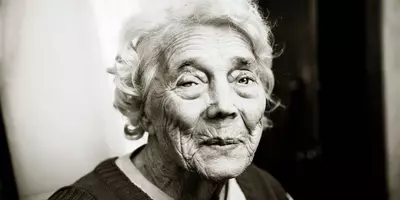 Home care jobs and care home jobs - an introductory guide
Home care jobs and care home jobs - an introductory guide9 Jun 2012 ● Matt Farrah, Nurses.co.uk Founder
Home care jobs and care home jobs - an introductory guide
All across Socialcare.co.uk you’ll see jobs in care homes, and jobs in home care. There’s an important difference, of course. Here we briefly outline four of the most common such jobs that you’ll find on this site.
Home Care Jobs
The provision of care for those who need it in their own homes is fast becoming an essential for so many. In providing a degree of either professional healthcare and or any number of life assistance services to people in their own homes when they most need it aims to greatly improve the quality of life of so many and enables individuals to remain independent for longer.
Home care ensures the same level of care provision that a client would receive in a hospital is afforded to them in their own home. Home care is provided for the elderly, or people with learning disabilities or sensory or physical disabilities.
Good and well run healthcare in the home therefore can result in a drop in hospital admissions. It’s a positive step that reduces the drain on decreasing social care resources.
Home care jobs vary and can be notably a healthcare role or a general supportive care position in the patient’s own home. The length of home care can be short term, for example after surgery or a trauma, or longer term where the patient may no longer be able to look after themselves on a day to day basis due to a terminal illness or mental disabilities.
Home care jobs include non medical personnel as well as fully trained nursing staff depending on the individual in their care and the needs of that individual.
Professional healthcare can include areas of responsibility such as medical and psychological assessment, wound care, pain management, disease education and management, medication teaching, and a number of therapies such as physical therapy, speech therapy and occupational therapy.
The life assistance services are those tasks that would normally be undertaken by non-medically trained staff, and whose responsibilities would include meal preparation, toileting, medication reminder, laundry, light house work, errands and shopping and transportation.
Crucially, simple companionship for those in their care plays a vital role in the job of a home carer.
Nursing Home Jobs
Traditionally nursing homes were residential homes where the elderly live when they can no longer care for themselves in their own homes. However, the modern nursing home is a comfortable place of residence for people who specifically require constant nursing care by qualified registered nursing staff.
A nursing home encompasses all of the elements expected of a care home such as accommodation and personal care, but with the added benefit of an around the clock specialist care from qualified nurses.
Individuals are admitted to nursing homes for a number of reasons. These include those whose health has deteriorated to a point where they need constant nursing or when an individual requires one or more of the following procedures periodically in a 24 hour period – incontinence care, dressing of a wound, administration of medication by injection, those who are bed ridden and need nursing care or those who are rehabilitating after surgery or serious disease.
Therefore a nursing home becomes an option for registered nurses as an alternative to working on standard wards in hospitals. Staff nurses, and more specialised nursing care staff such as RMNs (mental health nurses) and RNLDs for those residents who require learning disability nursing will be on hand to provide this care.
Other jobs available in the nursing home industry include healthcare assistant jobs, (healthcare assistants are generally unqualified members of staff who tend to look after residents’ personal care needs). Health care assistants tend to have more nursing duties, while care assistants provide general supportive roles.
There's not a clearly defined line between the two, but general usage of the terms tends to suggest this difference. We have more information about care assistant jobs here.
Nursing homes jobs are on the increase due to the fact that the demand is rising and the median age of the UK is on the up – 16% of the UK is now aged over 65 and by 2034 this will have risen to 23%.
Care Homes Jobs
Elderly care is set to increase dramatically and therefore the demand for qualified nursing staff is set to rise. With age, of course, comes other health and care issues such as the need for mental health care, dementia care, respite care, residential care, post-operative care and learning disabilities care.
Care homes already play an essential role for the UK but the requirement for more care in a home is certainly going to increase. Care homes jobs are available in many types of residential care home or nursing homes, catering for the elderly, for adults and young people, as well as those with physical or mental health needs.
Care homes are run by a local authority, or the voluntary sector or they are privately owned. In the majority of care homes medical care is required for the residents and, as explained above, care home nurses are required to be on hand 24 hours a day.
Typically, care assistants provide full time support to residents, including providing meals, and ensuring that bathing and toilet needs are met.
Care home nurses are there to see to the medical requirements of the residents (medication, for instance) and they will be assigned a group of residents to care for at any one time.
Care homes offering medical care must be registered as such and the nurses must have studied in order to become an RGN – Registered General Nurse.
It is a requirement to obtain a pre registration degree in nursing, and, once you have obtained this degree, you’re permitted to register with the Nursing and Midwifery Council (NMC) and only then do you have the right to apply for nursing jobs.
The first year of the pre registration degree is the CFP year, which is the Common Foundation Programme shared by all RGN Nurse students regardless of which specialism they choose to take up in the following two years. Various branches and specialisms may be pursued. For instance, a care home nurse may choose to work with children in a children specific residential home.
Children and adolescents may be in a care home for reasons such as severe disability, learning problems and emotional trauma. The role of a care home nurse in either of these settings is key and would involve a wide range of responsibilities.
For instance, the jobs of a care home nurse may include providing the planning of patient care and administering medicines required for therapy and diet.
Care home staff need to be able to evaluate progress of their patients and make changes to their care when appropriate as well as monitor vital signs, medication requirements down to changing dressings on wounds or administering enemas and starting intravenous medication or fluid drips.
Other areas not uncommon to the job of a care home nurse are to carry out motion exercises to keep their patients/residents mobile and supple and also to counsel families of those in their care.
Home Manager Jobs
Home manager jobs can include the management and overall running of both residential care homes as well as nursing homes.
Nursing home manager posts generally require applicants to have nursing qualifications and experience such as RGN registered nurses qualification or RMN (registered mental nursing qualification) or indeed an RNLD qualifications specialising in learning disabilities, as well as general management experience.
However, this is not strictly, always the case.
Some care managers applying for home manager roles may not require a formal nursing qualification, but they will require knowledge or a degree of experience in the in the specialist service provision of their home.
For example, if the home that they were intending to manage was primarily concerned with the rehabilitation of alcoholics then the home manager would be expected to have experience and proven knowledge in this specific area.
Other skills that may be expected of a home manager include knowledge of vocational standards, and a good degree of team leadership and efficiency.
Regulated industry procedures with relevant qualifications, such as an NVQ4 level of training, help to indicate a required level of understanding and many jobs make the qualification a requirement.
The LMA, Leadership and Management Award, which replaced the RMA in 2008, demonstrates skills for care and skills for health for those managing homes.Finally, the CQC, Care Quality Commission, sets out standards of care which all home managers must adhere to.
The CQC was set up in order to regulate the care provided in care homes in the UK, and to set a minimum standard of care throughout the country. The CQC requires home managers to always adhere to its best practice models and has the power to close down a care provider if the rules and standards set out are not followed.


